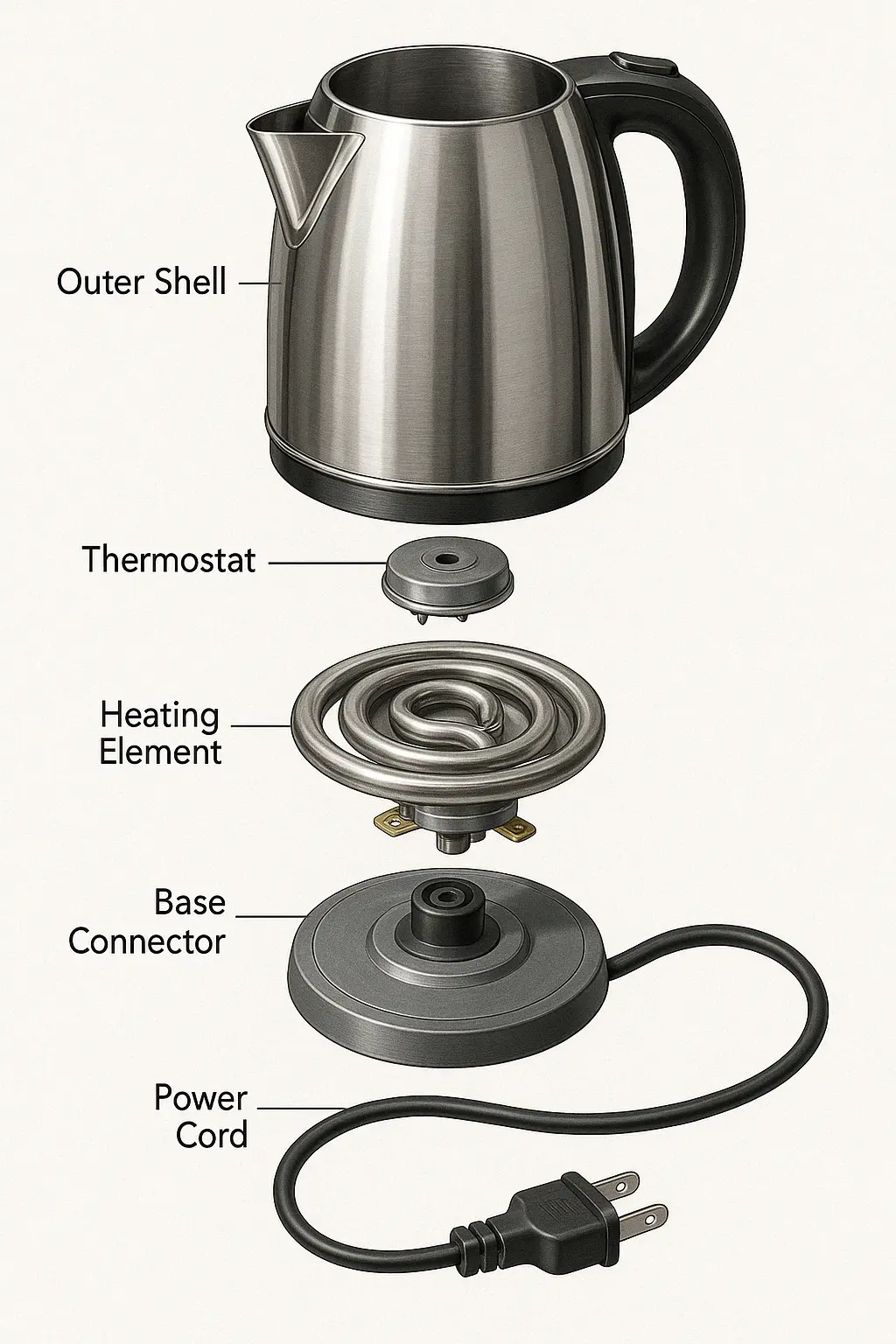
SOR/2016-181 Canada Kettle Regulations
Recently, Amazon issued a notice requiring all electric kettles sold on its Canadian platform to have a certification issued by an ISO 17025-accredited lab, proving compliance with the CSA 22.1 and SOR/2016-181 standards. Sellers are encouraged to upload the relevant documents by October 30, 2023, to avoid potential product removal from listings.
Amazon Kettle Product Definition
A kettle is a device that heats water to a boiling point, typically through heat generated by a stove. An electric kettle heats water by running an electric current through a coil, also known as a heating element, which raises the water to the boiling point. Some kettle types include a thermostat that automatically shuts off the kettle when it reaches the target temperature.
This policy applies to any item that heats water and may contain lead, such as percolators, stovetop espresso makers, and moka pots, even if they are not labeled as "kettles."
Amazon Canada Kettle Safety Standards
Amazon requires that all kettles comply with specific regulations, standards, and requirements. Plug-in kettles must comply with both SOR/2016-181 (Kettle Regulations) and CSA 22.1 standards, while non-plug-in kettles need to comply with SOR/2016-181 only.
The CSA 22.1 standard, developed by the Canadian Standards Association (CSA Group), covers the safety requirements for electrical equipment. The SOR/2016-181 regulation, issued by the Canadian government under the Canada Consumer Product Safety Act, requires electric kettles to meet specific safety standards. CSA 22.1 ensures that electric kettles have strong electrical performance and durability, as well as safeguards against electric shock, overheating, and short circuits. The SOR/2016-181 standard further mandates that electric kettles comply with consumer safety requirements in materials selection, product design, manufacturing process, and labeling.
The SOR/2016-181 regulation specifies that, using the testing method below, the lead content in the water should not exceed 0.01 ppm:
1. Prepare the kettle for use according to the manufacturer’s instructions.
2. Add 1 liter of distilled, deionized water to the kettle.
3. Boil the water in the kettle for 15 minutes.
4. When the water cools to room temperature, measure the lead content in the water as ppm w/w, based on a 1-liter volume.
Required Information
=
Your product detail page must include the following information:
- Model, part number, or SKU
- Manufacturer’s or private label holder’s (distributor’s) name
You must submit the following documents:
- A test report issued by an ISO 17025-accredited lab, verifying the product’s compliance with the above regulations, standards, and requirements. This report must include images of the product to confirm it matches the product listed on the product detail page.
- Clear, identifiable product images that show product labels, safety information, compliance marks, hazard warnings, and all sides of the product or its packaging. These images must confirm that the product matches both the tested product and the one listed on the product detail page.
- Product instructions, manuals, safety information, labels, and warnings in both English and French.
- Model, part number, or SKU, along with the manufacturer’s or private label holder’s (distributor’s) name and address.
- Product instructions and manuals.
Penalties for Policy Violations
If the required information is not provided, Amazon reserves the right to take further action under the Amazon Services Business Solutions Agreement, which may include removing the relevant product listing.
Notice from JJR China Laboratory
Recently, many kettle sellers received emails from Amazon requiring submission of relevant testing reports by the end of October. As the certification process may take some time, JJR Laboratory advises sellers to be proactive and prepare the necessary documents early to avoid listing removal, sales delays, or impacts on store rankings. For more details, sellers may contact JJR Laboratory staff to confirm the testing requirements for their products.
Email:hello@jjrlab.com
Write your message here and send it to us
 What is the 4.3 Toxicology Test in ASTM F963?
What is the 4.3 Toxicology Test in ASTM F963?
 What is the Canada Tent SOR/2024-217 Test Report?
What is the Canada Tent SOR/2024-217 Test Report?
 How to get the Amazon AS/NZS 1900 Test Report?
How to get the Amazon AS/NZS 1900 Test Report?
 Children's Jewelry CPC Certification and ASTM F292
Children's Jewelry CPC Certification and ASTM F292
 Amazon Ladder Compliance Certification Guide
Amazon Ladder Compliance Certification Guide
 Amazon and Temu Require FCM Test Reports
Amazon and Temu Require FCM Test Reports
 Electric Kettle Amazon Canada Compliance Certifica
Electric Kettle Amazon Canada Compliance Certifica
 Do You Understand Amazon Compliance Certification?
Do You Understand Amazon Compliance Certification?
Leave us a message
24-hour online customer service at any time to respond, so that you worry!




